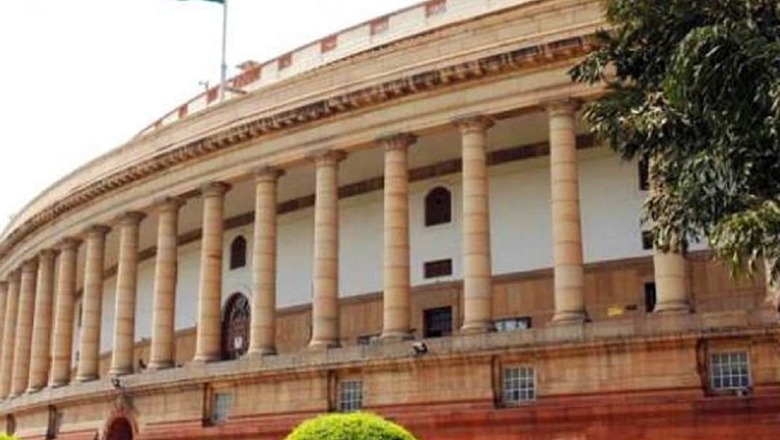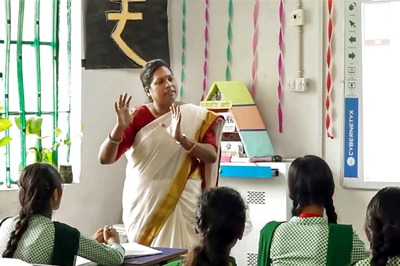
views
The Indian administration has become heavily dependent upon a particular administrative service and it is time to give equal opportunity to officers belonging to other services having expertise in that specific domain, a parliamentary committee said in its report on Tuesday. The committee said it is of the view that while making appointments to higher echelons of the administration, priority should be given to integrity, calibre, aptitude and interest of the officer among other things rather than the service to which he belongs.
"The generalist versus specialist controversy is one of the major challenges facing the Indian civil service today. Today, India needs no generalists or specialists but specialised generalists, i.e. a generalist with knowledge, work experience in a particular domain. This calls for administrative review and restructuring along functional lines," it said. The committee is of the opinion that the Indian administration has become heavily dependent upon a particular administrative service, the Department-related Parliamentary Standing Committee on Personnel, Public Grievances, Law and Justice said in its 106th report on Demands for Grants (2021-22) of the Ministry of Personnel, Public Grievances and Pensions.
"They seem to have an edge over others in securing key decision-making positions in the government, it said, without mentioning the name of any service. The panel's recommendation assumes significance as Prime Minister Narendra Modi last month said what can be achieved by handing over the nation to "babus" (government officials).
Just because somebody is an IAS officer, he is running fertiliser and chemical factories to airlines, Modi had said in a reference to public sector units being headed by bureaucrats, and asked what this will achieve. The committee noted with concern that 349 IAS officers have not submitted their Annual Immovable Property Returns (IPR) for the year 2020 in the stipulated time limit.
"During the examination of Demands for Grants (2020-21), the committee was informed that 338 IAS officers had not filed Immovable Property Returns for 2019. This makes a case for institution of stringent measures other than denial of vigilance clearance against erring officers," it said. The committee recommended the Department of Personnel and Training (DoPT) and the Central Vigilance Commission (CVC) to increase surveillance on the activities of such officials.
"The committee also recommends the DoPT to furnish a status note detailing the stringent measures that can be taken against IAS Officers who fail to file IPRs within the stipulated time limit," it said. An IAS officer is required to submit an annual return with the government giving full particulars regarding the immovable property inherited by him or owned or acquired by him or held by him on lease or mortgage, either in his own name or in the name of any member of his family or in the name of any other person.
There are 5,166 IAS officers working across the country as against their sanctioned strength of 6,746. The committee in its report noted that the gap between the sanctioned strength and the in-position strength of IAS officers is increasing exponentially year-on-year.
"The DoPT has informed the committee that the constitution of committee for reviewing the annual intake of IAS officers beyond civil services examination 2021 is under process. The committee hopes that the annual intake of IAS officers will be significantly enhanced keeping in view the evolving needs of the Indian administration," the report said. The panel recommended the DoPT to undertake an assessment of the impact of shortage of IAS officers on the administration. "The committee believes that the outcome of impact assessment and the knowledge gained from that exercise would be of immense help in improving future performance," it said.
The committee observed that there is acute shortage of bureaucrats both at the middle level and the entry level. "The committee is of the considered view that this human resource deficit can be offset by expanding the scope of the Central Staffing Scheme to include all levels of bureaucracy and by reframing the eligibility conditions to cover the officers of all the organs of governance of the Union government, including the legislature, the judiciary, autonomous and constitutional bodies among others, it said. The committee opines that revamping the Central Staffing Scheme entails many benefits and will help bring in qualified human resources, domain expertise and new ideas, it said.
The DoPT has informed the committee that lateral entry is to be undertaken to 40 posts of Deputy Secretary and Director, identified in different ministries and departments. Lateral entry is referred to appointment of private sector specialists in the government.
These posts are to be filled on contract/ deputation basis for a period of three years, extendable up to five years, the DoPT said. In the first phase, 27 different posts of director in 14 departments have been identified to be filled through lateral recruitment. "The Union Public Service Commission (UPSC) has been requested to undertake the entire selection process, which is presently under process. In the next phase, it is proposed to undertake the recruitment for 13 posts of deputy secretary in various ministries/ departments, which is also under process, the report said.
.
Read all the Latest News, Breaking News and Coronavirus News here



















Comments
0 comment